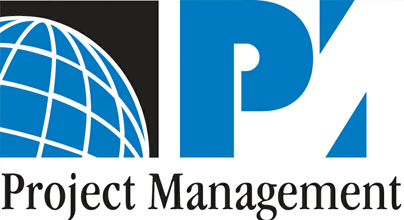Project Management Fundamentals - On Demand Project Management Fundamentals teaches hands-on, immediately applicable skills for connecting team performance with customer satisfaction by leading, defining, planning, and executing projects. Participants learn and practice techniques for clearly defining success, planning for performance and performing. If you’re looking for a lower cost but high impact option to learning the fundamentals of project management, you have found the right course. This On-Demand course, worth 108 Professional Development Units (PDU), provides guidelines for managing projects of any size using the following project processes: leadership vs. management, defining success, planning for performance, and performing to plan. During this MMC self-paced online course, participants learn and apply fundamental project management skills and processes. During each module of the course, a participant learns specific principles of project management. Participant education is reinforced at the end of each module through module email assignments that are performed using one of the participant's own projects. Finally, participants must complete the end of module quiz and score 100% before you can move on to the next module. This course incorporates some of the Project Management Institute's PMBOK® (Project Management Body of Knowledge) guidelines and is beneficial in the preparation for and maintenance of the PMP® (Project Management Professional) certification. Demand for professionals who understand principles and practice project management skill sets has become one of the fastest growing disciplines in North America. Even the smallest projects can benefit from project management processes such as the Project Management Fundamentals course material. Project Management Fundamentals is broken into 9 separate course modules which are self paced for your completion of the material.
Each module is afforability priced at $250 per session module and each one allows 12 PDU credits upon completion. If all sessions are completed, the participant recieves a total of 108 PMI® registered PDUs and a certificate of completition. The on-line course can be accessed by registering with our partner MMC through the link below. It will allow you to create a personal login ID and unique password to use for registering for the course modules. PMI®, PMP® and PMBOK® are registered trademarks of the Project Management Institute. <click here to register for the course>
Introduction to Project Management Project Management is the process of managing resources, people and benefits across multiple projects to achieve business goals. A Project is defined as being both temporary and unique requiring progressively elaborate planning to meet the projects requirements and deliverables. Dr. Denis Peterson will provide video links and explanations for critical areas of explanation and the session modules contain video skits to drive home principles and to have some fun. You will learn how to control the project Resources for success including Labor, Equipment, Materials, Budget and others. This list of resources is used to balance the competing demands of the Triple Constraint of Cost, Time and Scope. In this Project Management Introduction, you will be exposed to the other 8 key PMI® Knowledge areas and how they are interconnected to each other:
After completion of this session module, you will have a clear understanding of the purpose of a project and what a customer requires for accurate and successful project closure. Additionally, a primary objective of project success is in the project planning. This is accomplished by improving a project plan as more information becomes available, planning in steps or increments and executing the project plan with care and detail. The primary purpose for organizing and running projects is to enable project teams to deliver products, systems, services or results that meet their customers’ requirements by delivering on the project team promises. To sign up for this online session module and receive 12 PMI® PDU’s <click here> Project Scope Management
Deliverables are products or services produced as part of a project, such as hardware or software, planning & scheduling documents, or quality paperwork. The project team and stakeholders must have the same understanding of what products will be produced as a result of a project and how they’ll be produced to keep the project within the cost, time and performance requirements. You will learn the five Project Scope Management Processes defined in PMBOK ®® in this session which are:
You will learn why Scope creep management is important for effective project management and the effects of “Gold Plating”. Projects are expected to meet strict deadlines with resource constraints, and unapproved change in the scope can affect the success of the project. To sign up for this online session module and receive 12 PMI® PDU’s <click here> Project Cost Management Project Cost Management is a series of activities for estimating, allocating, and controlling costs within the project. It allows determining and approving a budget for the project and controlling the spending. In construction, project cost management is required to accurately estimate the cost of materials, equipment and people. Additionally, Project Cost Management is a method which uses technology to measure cost and productivity through the full life cycle of enterprise level projects with specific functions.
Beginning with estimating in this session module, you will learn the process and tools to accurately plan all aspects of the project. As a project moves forward, cost control uses data from the estimate with the information reported from the projects performance to measure the actual cost and production of the project. From project initiation to completion, you will learn that project cost management has an objective to simplify and lower the cost of the project experience. To sign up for this online session module and receive 12 PMI® PDU’s <click here> Project Time Management Time is a dreadful resource to waste. It is one of the most valuable assets in your project available to you. Project time management refers to a component of overall project management in which a schedule or timeline is analyzed and developed for the completion of a “Project Plan,” goals or deliverable. Project time management consists of six different interconnected steps.
The project time management process is dynamic and requires input from several different interconnected teams each with their own individual project time management process in order to integrate the various interdependent component parts of the project to achieve the project deliverable. You will learn about the concepts of float, lead. These aspects of tasks are important in order to calculate accurate project timeline variations and eventually the project completion time. To sign up for this online session module and receive 12 PMI® PDU’s <click here> Project Quality Management Project Quality Management is all about the synergy of continuous improvement of the project and the principal of project delivery. Using a Quality Management approach plays a key role in assuring the project meets the customer requirements.
You will learn that together they help to identify how to permanently remove causes of unsatisfactory performance as a part of the monitoring and controlling process group. These three Quality processes interact with each of the other knowledge areas, and they interact and overlap with one another because they are frequently being conducted at the same time. Project Quality Management address both the management and the product of your Project. This includes all the activities or services of the performing organization that determine quality policies, objectives, and responsibilities so that the project will satisfy the needs for which it was undertaken. Additionally, you will be exposed to the importance of Customer Satisfaction, Prevention over Inspection, Quality Management's responsibility, Continuous Improvement and the Cost of Quality. Project Quality management has a specific meaning within many business sectors which does not aim to assure “good quality” but rather, to ensure that an organization or product is consistent within its processes and meets the customers quality requirements. To sign up for this online session module and receive 12 PMI® PDU’s <click here> Project Human Resources Management People determine the success and failure of organizations and projects. Project human resource management includes the processes required to make the most effective use of the people involved with a project. Project Human Resource Management (HRM) also involves organizing and managing people on a project team. The team is usually made up of different people with specific skills and responsibilities. The project team, also known as project staff, should be involved in planning and decision making from the beginning of the project all the way through the project closure. Projects are more likely to succeed when project managers influence with professional expertise and challenging work. Projects are more likely to fail when project managers rely too heavily on authority, money or penalty. Project Human Resource Management should represent all of the project stakeholders, sponsors, customers and individual contributors for:
Project Human Resource Management processes include human resource planning, acquiring the project team, developing the project team and managing the team. In this course, you will learn that HRM is the process of managing people in organizations and teams in a structured and through manner. All Team members should feel invested in the outcome of the project. This will increase loyalty and commitment to project goals and objectives. The number of team members and their responsibilities can evolve or change as a project moves forward. To sign up for this online session module and receive 12 PMI® PDU’s <click here> Project Communications Management Project Communications Management is a subset of project management that includes the processes required to ensure timely and appropriate generation, collection and dissemination, storage and ultimate transfer of project information. It consists of communications planning, information distribution, performance reporting, and project administrative closure. Project Communications Management plays a key role in keeping all members of the project management team on the same page. Without communication among all team members and project stakeholders there can be a breakdown in processes which could have a negative impact on the final product. Project Communications Management can be broken down into essential knowledge and skills areas such as:
The project manager must know the communication processes involved in effective project management. Next, that information must be made readily available to all internal and external stakeholders and generated in a timely fashion. To sign up for this online session module and receive 12 PMI® PDU’s <click here> Project Risk Management Project risk management can be defined as “the systematic execution and monitoring of tasks to detect, analyze and optimize project risks.” Project risk management is also a method of finding risks, classifying risks and mitigating risks. It involves both quantitative & qualitative methods of ranking risks according to their potential to create problems. Risk is any uncertain event that can have an impact on the success of a project. Schedule slippage is a risk, even if it's caused by bad estimating. Another example would be a change in the Project’s scope or requirements. You will clearly understand that there are 4 ways to handle a Risk:
You will learn that Risk mitigation is an essential part of project risk management. The risk manager creates several methods of mitigating each risk. Mitigation methods are ranked by their traits, such as cost, time to implement and effectiveness. The organization then implements the mitigation method with the completion of a Project Risk Plan. Once it is complete, the risk may be considered closed if the mitigation successfully reduces the severity below a predefined threshold that the risk manager and project team stakeholders define and accept. To sign up for this online session module and receive 12 PMI® PDU’s <click here> Project Procurement Management Project Procurement Management is the task of managing all the procurements that are to be done as part of the project execution. Within our procurement activities, we manage the life cycle of the procurement process and the purchasing activities. This includes determining which products or services will need to occur external to the project team.
You will learn that these are the processes necessary to purchase or acquire the products, services or results needed from outside of the project team in order to complete the project. In total, there are six processes within the PMI® Knowledge Area and they span the planning, executing and monitoring and controlling process groups. Planning of project procurements is carried out within the procurement process and results in developing a plan. A procurement plan is a convenient tool for organizing and managing activities and tasks related to the procurement management process. It will be clearly described why the process of Project Procurement Management includes the critical element of project management relations between both the buyer and seller via the contract. The final step of the project procurement management process refers to using a system of performance indicators and measures for assessing the effectiveness and success of the entire process. To sign up for this online session module and receive 12 PMI® PDU’s <click here> |











